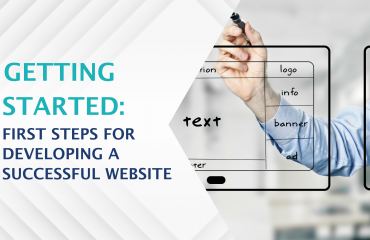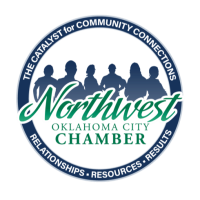
In our previous blog post, “Power of a Brand: Your Market”, we discussed how defining your market is one step in the overall strategy for building a powerful brand. A market includes your competition, your geographical area and the subset of people most likely to buy your product or service.
Identifying the specific clients or people your business wants to go after is vital to good marketing; however, it represents only the top layer of a tiered cake. If you are going after the good stuff, you will want to dig in a little more and create client profiles, also known as buyer or user personas.
Below, we discuss buyer personas, why they are essential for small businesses and entrepreneurs and what they can do to level-up companies’ marketing efforts and help them grow into powerful brands.
What is a persona?
A persona is a description of a typical client, buyer or user of your product or service. Marketers use personas to get very specific about the likes, dislikes, characteristics and behaviors of the most profitable potential clients and refine their messaging to resonate with this group of people.
However, a buyer persona is not an actual person; it’s a representation of a specific client or customer. Companies can build as few or as many personas as they need to define their customers and guide their marketing strategy and efforts.
Whereas a target market broadly defines a group of customers based on demographic and psychographic data, a buyer persona provides detailed information on a typical customer’s behavior or the inside track on why they would be interested in a particular company’s products or services.
A business’ final persona draft looks like a typical client’s bio, including a fictional picture, demographic information and how and why they would buy or use a particular company’s products or services.
What’s included in a persona?
An effective persona profile should include:
• Demographic information
• Job and career facts
• Pain points
• Spending power
• Level of knowledge about your product
Most personas include information that may seem irrelevant on the surface but help business owners and their teams get into their client’s shoes to understand why they would purchase from their company as opposed to another. For example, some personas include a fictional name and the customer’s typical day. Personas can take the form of a CV or resume, a profile story, or something in between.
Some companies even make negative personas representing customers they do not want as clients or customers. Even though the term has ‘negative’ in it, this persona type can help a business end in the green instead of the red because knowing who won’t buy into your services prevents your company from spending time and effort on pursuing customers who are not fruitful. For example, if you are a divorce attorney, it would be ineffective to pursue a customer that has been married for over 20 years and demonstrates a stable life.
In addition to finding clients that are a natural fit for your services, start identifying the work that takes the most time and money. For example, you don’t want a client who constantly asks for unreasonable deadlines or additional services outside a contract. Identifying the things you don’t want from clients will give a clear direction on where your marketing efforts should focus to drive the most profits.
Why are personas important for a small business or entrepreneur?
A persona provides valuable information and several advantages for business owners. Some benefits of creating buyer personas include:
• Reveals what a company should say, where to say it and when to say it.
Crafting specific content that meets customers’ needs maximizes marketing efficiency. For example, a well-written persona that includes pain points reveals why a person would choose one product or service over another. A business can then speak to those specific values in its marketing content.
• Helping a business get on the customer’s side.
As soon as you walk in their shoes, you will automatically feel more empathy for their problems and how your service or product can uniquely solve their issues. Understanding what customers find valuable may differ from what a company typically thinks it should deliver or promote to customers.
• Telling a business how to spend its marketing dollars.
A persona should reveal where your customer gets and retains information, so you are not spending marketing dollars advertising in places they are not browsing or shopping. A business can even include persona-type questions on customer surveys to help target their email marketing campaign and increase its effectiveness.
• Revealing new product and service opportunities.
A persona profile may indicate to a company that its product or service is not meeting its customers’ needs. In these cases, a company can start thinking of new ways to fix a customer’s pain points.
What’s included in a buyer persona?
Writing buyer personas is not a small exercise. But investing time in researching and writing personas offers numerous benefits to small business owners that will pay off greatly in the long run. A buyer persona can help entrepreneurs and small business owners in five powerful ways.
• Who –Writing a buyer persona(s) can tell a company who will most likely buy their product. But it goes beyond what demographics show. A persona should narrow down the demographic data to the most specific people ripe to receive the messages you put out about your product or service. These highly customized messages show potential clients that your services are there for them and them alone.
Knowing the who saves money because you can direct your marketing dollars to the people most likely to buy your product or service. If you develop a negative persona, as discussed previously, the company benefits by knowing who not to spend their money wooing.
• What – A persona shows what a customer needs, which shifts the perspective from “what the company can do for you” to how the business can best serve and meet the client’s needs. Ultimately, a company won’t last long if it doesn’t listen to what customers want or need.
Knowing the what puts a business in a better position to compete against businesses selling similar products or services. If a company knows what to say better than its competitors, it builds more trust and puts the company in a better strategic position to get potential clients’ business. A persona will reveal what to say to potential customers so you can one-up the competition.
• When – The buyer persona should show a business when the best time is to reach their ideal client. The when can also frustrate business owners who are ready to make a sale today. However, a persona sees it from a buyer’s point of view.
For example, when you are ready to buy a car, do you go straight to the dealership and buy the first car you see? Probably not. You may spend hours, weeks, months or even years perusing the internet, test-driving cars and looking for sales data from all over the country before deciding which make and model is right for you. The exact process holds for customers in almost any purchase decision. Today, customers spend more time researching products than they ever have before.
Knowing the when gives a business direction on spending marketing efficiently. Some products and services sell on a typical cycle or season. However, most businesses do not, so a persona can give you valuable data to see when the ideal customer is ready to hear your marketing message.
• Where – Similar to the when, a person can show a company where to advertise and promote its products or services. A persona should show the places where the most lucrative customers will be. When a business spends money in the places they know their ideal clients will be, the spend becomes much more efficient.
Knowing the where uncovers new and more effective marketing opportunities. Again, a persona should reveal new insights into where customers will most likely hear and take in your marketing content. Often, the where is the place fewer potential customers are, but these clients are more lucrative and loyal ones.
• Why – Why do people buy stuff? People buy things to fill a need or want. So, knowing the why is a powerful piece of information a company must know. Entrepreneurs can learn more about why their clients choose them by building a persona profile and getting them within reach of their most profitable future customers.
Knowing the why saves a company time and money. The biggest tip we can give when building personas is to research the market from a different point of view. The persona shouldn’t show a business owner everything they already know. Instead, the information should point an entrepreneur toward the most profitable clients, giving them peace of mind that they are not wasting time and money advertising in places they shouldn’t.
Pain points is a term that marketers often use instead of the why in a persona. Pain points are the problems a customer experiences and how a company can solve them. Defining customers’ pain points gets a business closer to the real reason they would need or want the products or services. Again, this requires the business owner to shift traditional thinking, especially for those excited to sell what they have always been selling or want to bring to market. Pain points may reveal the existing service or product doesn’t entirely solve a customer’s problems or meet their needs.
Crafting marketing that solves a customer’s pain points increases the know, like and trust factors between the business and the customer. Instead of telling a customer what a business can do for them, a buyer persona teaches how to speak to what the customer needs. Positioning a company on the buyer’s side shows empathy. Empathy builds connection; connection builds into trust, and trust leads to sales.
Final Thoughts
Do you know who your clients are? Defining the types of customers you’re most likely to see sales from is an essential part of your brand strategy. Knowing your customer drives decisions from the language you use, how you describe your products or services and the places you advertise.
For the small business owner fed up with being one-upped by the competition, a buyer persona can provide powerful insights into who the most profitable customers really are and how, when and where they want to be contacted. A persona helps a business owner get the inside scoop on potential sales before the competition gets the chance.
A buyer persona is one piece of a marketing strategy that helps build a powerful brand for a business. The Uptimize team can help take this work off your plate and create personas to get you to outperform the competition. If you are interested in learning more about personas, please book a free consultation with us. We are always willing to answer any questions you have and want to learn more about how to build up and support your business.










